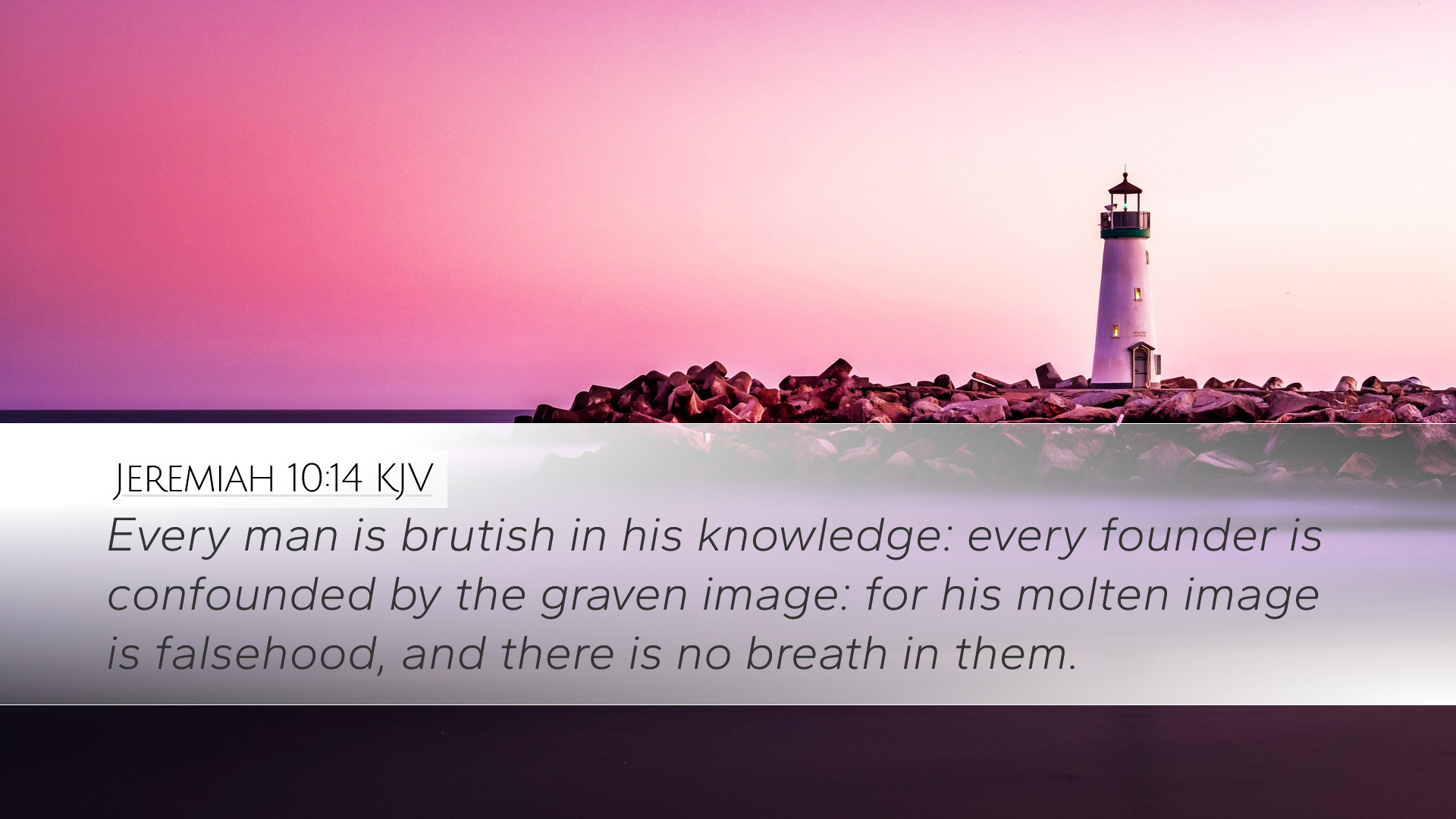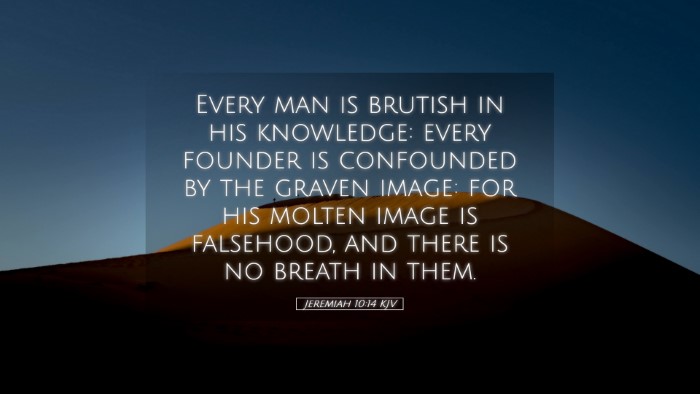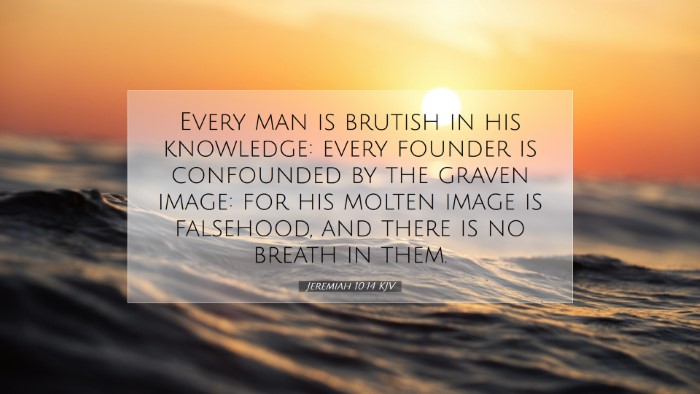Commentary on Jeremiah 10:14
Jeremiah 10:14 states, "Every man is brutish in his knowledge; every founder is confounded by the graven image: for his molten image is falsehood, and there is no breath in them." This verse serves as a profound reflection on human understanding and the futility of idolatry.
Contextual Overview
The Book of Jeremiah is primarily a prophetic work that denounces idolatry and calls the people of Israel to repentance. In this context, Jeremiah 10 serves as a warning against the practices of idol worship that were rampant in Judah and surrounding nations.
Insights from Commentaries
Matthew Henry
Matthew Henry, in his exegetical approach to this verse, underscores the intellectual folly of mankind when turning towards false gods. He articulates that:
- Brutish Understanding: Henry emphasizes that "brutish" denotes not just ignorance but a complete lack of spiritual insight. Humans, in their misguided pursuits, display a level of folly akin to that of irrational animals, unable to comprehend the true nature of God.
- Idolatry's Deception: He points out that the confusion among idol makers is an illustration of the profound deception behind idolatry. They create images that cannot capture the divine, leading to a false understanding of what God is like.
Albert Barnes
Albert Barnes provides a more analytical perspective, examining the theological implications of the verse:
- Human Knowledge: Barnes remarks on the limitations of human knowledge in matters of the divine. He notes how mankind often relies on their own flawed reasoning rather than recognizing the supremacy of God's wisdom.
- The Nature of Idols: He explains that idols are nothing but cultural constructs, full of superficial significance and devoid of spiritual substance. The "falsehood" denotes their inability to convey any truth about God.
Adam Clarke
Adam Clarke elaborates on both the cultural and spiritual dimensions, linking the passage to the wider narrative of prophetic literature:
- Contrast to Divine Wisdom: Clarke highlights a stark contrast between the wisdom of God and the ignorance of man. The verse serves to illustrate the difference between divine revelation and human innovation.
- Spiritual Breath: He reflects on the phrase "there is no breath in them," indicating that idols, unlike the living God, lack life and vitality. This underscores the emptiness of worshipping material representations instead of the Creator Himself.
Theological Implications
From these combined insights, several theological implications emerge:
- The Nature of True Knowledge: True knowledge of God comes from revelation rather than human reasoning or craftsmanship. The verse calls the reader to seek understanding through spiritual discernment rather than earthly wisdom.
- Futility of Idolatry: The futility of creating idols is emphasized. Worshiping something crafted by human hands diminishes the glory of God. Instead, believers are called to worship the invisible God who breathes life into all things.
- Call to Repentance: This passage serves as a stark reminder of the necessity for repentance. The acknowledgment of our brutish nature and the tendency toward idolatry invites a return to true worship.
Conclusion
Jeremiah 10:14 is a powerful declaration against the backdrop of human folly and idolatry. By examining this verse through the lenses of notable commentators such as Matthew Henry, Albert Barnes, and Adam Clarke, we gain a comprehensive understanding of its implications for faith and practice. The call is clear: to abandon the ways of ignorance and to embrace the truth of God who alone gives wisdom, life, and breath.


